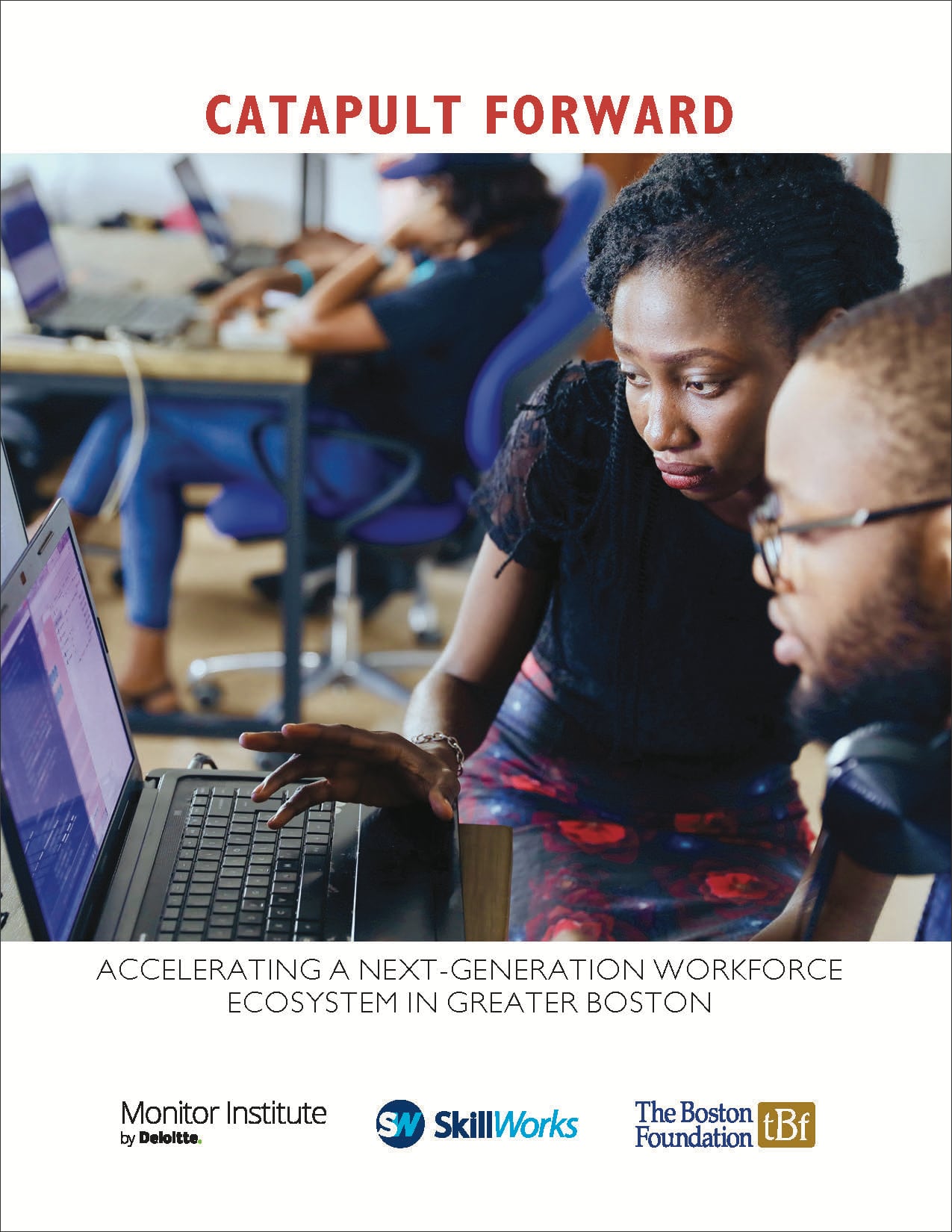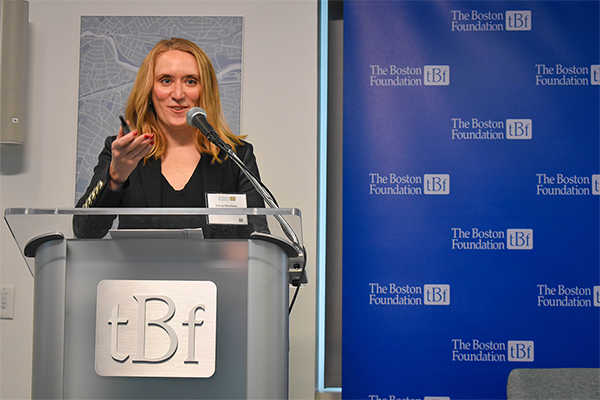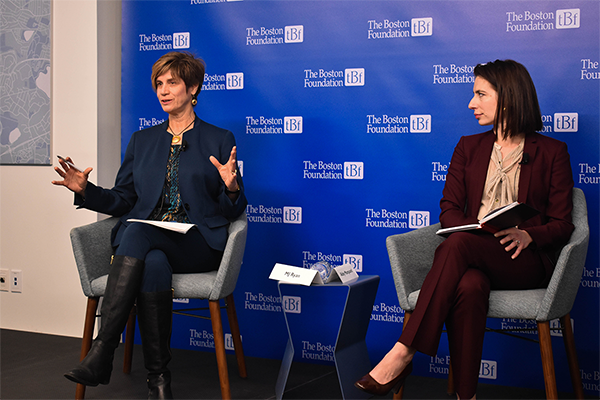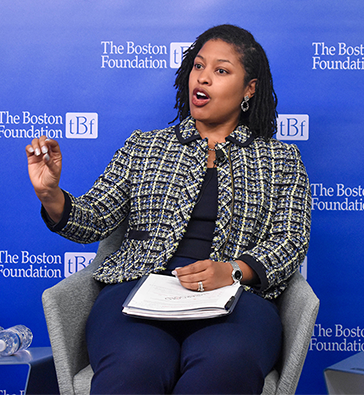Catapult Forward
Accelerating a Next-Generation Workforce Ecosystem in Greater Boston
December 18, 2019
“Gone are the days of thinking about workforce development as a purely human service endeavor.”
So said Tracie Neuhaus, Senior Manager at Monitor Institute by Deloitte and lead author of a new report about next-generation workforce solutions in Greater Boston, at a forum at the Boston Foundation’s Edgerley Center for Civic Leadership on December 18. The report, Catapult Forward: Accelerating a Next-Generation Workforce Ecosystem in Greater Boston, was commissioned by SkillWorks, a nationally-recognized funding collaborative hosted at the Boston Foundation. It examined how leading practices in workforce development are playing out in the local ecosystem. These practices are based on competencies originally outlined in The Catapult Papers, a series of essays on new approaches to workforce development released last spring at the time of the launch of Project Catapult.
As Neuhaus stated, Project Catapult leaves behind a model that exclusively focuses on the client/worker and reliance on the social conscience of companies to come up with jobs for them. Instead, “next-gen” workforce organizations recognize that in the current economy, employers are just as anxious to find good employees as candidates are to find good jobs. Project Catapult creates partnerships among employers, workforce training and other service providers, and invests in market-driven approaches that are designed to meet employer needs, while elevating people from previously underutilized talent pools to take advantage of our region’s strong economy.
The Monitor Institute team looked closely at a dozen service providers and conducted interviews with staff, program participants and employers to examples of how specific organizations are bringing leading practices to life. Gaps remain, of course, and the report outlines these too—as opportunities for providers, employers and the system as a whole. (Read the full report on tbf.org.)
Following a brief presentation of report findings, a panel moderated by SkillWorks’ Senior Program Officer Kaitlyn Bean brought in the perspectives of employers, funders, and providers on the issues the report raised. MJ Ryan, Senior Director, Workforce Development & Economic Opportunity at Partners Healthcare, talked in part about the challenge of change: “The shift from charity work to business imperative is what we have to drive home; employers still have managers and HR folks thinking about workforce providers the way they did in 1980 or 1990. Unemployment at 2.9 percent sounds great… but as an employer you can’t grow if you won’t change your outlook.”
Abby Marquand, Vice President, Global Philanthropy at J.P. Morgan Chase & Co., appreciated the report’s clarity in redefining the workforce development ecosystem. “I spend a lot of time talking to workforce providers. They sometimes have trouble communicating what they do and why it is important. This report will help them do that in a way that would be especially compelling to funders like me. It sets the frame differently: as a suite of supports to help people with significant barriers to become eligible employees,” she said, adding later: “Funding streams typically don’t support partnerships. As a funder community we can do much better to help organizations work toward these shared goals.”
Aisha Francis, Chief of Staff in the Office of the President at Benjamin Franklin Institute of Technology, one of the providers described in the report, shared some of the challenges that providers continue to face. “Quantifying the value of work that requires multiple nonprofits is important. How can we incentivize closer partnerships and streamline our work? What if there were a ‘Common App’ for workforce development? Wouldn’t it be great if anyone could fill out one app to describe what they want to do or are prepared to do, that all agencies could access? There is opportunity to fund efficiency, there really is. Hopefully in the wake of this report, organizations will pick up on those opportunities.”
Learn more about Project Catapult, access the Catapult Papers and more at https://tbf.org/catapult.




